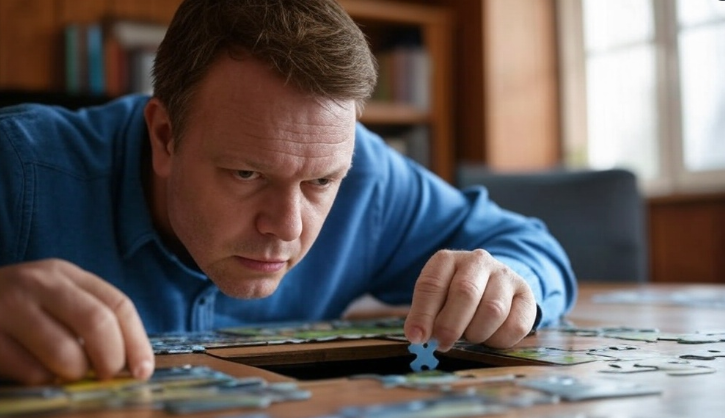Your Hivean Bias is showing
hive·@meno·
0.000 HBDYour Hivean Bias is showing
<center> </center> For weeks at this point, I’ve been torturing my dear wife with incomplete ideas rattling inside my head. She’s helping me sharpen them up, polish them, like only she can. Maybe I’m on the verge of something, maybe not, but when I’ve tried to bring some of these conclusions to big stakeholders, I get mostly brushed aside. This post is an attempt to understand why. # Survivor Bias >Survivor bias is a logical error that occurs when we focus only on the surviving or successful elements of a group while ignoring those that failed or were eliminated, leading to skewed conclusions. It happens because the “survivors” are more visible or available for analysis, while the “non-survivors” are often overlooked or unavailable. <i><b>This thought</b></i> comes to mind often. It seems to me there’s a parallel to draw here, even though it might not be obvious. But please stick with me for a minute or two. I’ve talked about user retention issues on this blog of mine almost from year one. I’ve been trying to help with this issue, also since year one. These days, @helpie may not exist anymore, but I keep on being interested in solving this problem. So, with ten cups of coffee circulating inside my body most days, I write down these ideas for later discussions. The following could be a good representation of a generic conversation I might have with another Hivean—possibly a witness or a big stakeholder. <b>MenO:</b> <i>You know what? I think it would help if we could have a stronger indicator for reputation. Yes, if the number next to our name actually meant something.</i> <b>FriendlyWhale:</b> <i>Yeah, it means little. But what do you need to know about someone? It takes me a minute to see if they are good.</i> # Message transmission failed. For one, I wasn’t talking about myself. One would hope that someone who’s been here for eight years can figure out if someone “<i>is good</i>” or not. So, it seems like I failed to even land a <i>single punch</i> on the face of the problem <b>yet again</b>. Now, I know the FriendlyWhale doesn’t mean to brush me aside. It’s being sincere. It’s even offering to help. One of them provided me a tool, which I appreciated, but again—I wasn’t talking about myself. <i>I was not confused.</i> It’s most definitely a bias of a kind—Success Bias. But for the sake of keeping things thematic, I’ll call it “Hivean Bias.” # Hivean Bias >Hivean bias is a logical error that occurs when we focus only on the remaining or successful users of Hive, while ignoring all the ones who left or got pushed away, leading to skewed conclusions. It happens because active Hiveans are visible and available for analysis, while the ones who quit are overlooked and unavailable. # Why am I bringing this up? I don’t know exactly. You could say this is an open letter of sorts. A mirror for self-reflection, for deep self-analysis. Are we able—you and me—to put ourselves in the shoes of the little guy? The confused user? The hungry user? Because if we can’t do that, or if we refuse to: ## How are we ever going to make this place any better? MenO
👍 joeyarnoldvn, isaaclim, piotrgrafik, kittykate, ripperone, sbi9, karinxxl, teutonium, omitaylor, paintingangels, erikah, sbi-tokens, b00m, spamfarmer, sneakyninja, thedailysneak, babysavage, leomolina, rcshad0w, saintchristopher, valued-customer, jellyvine, mengao, steemtelly, moeknows, ecoinstant, tomiscurious, voter003, voter000, votehero, projectdignity, ecosaint, fatman, we-are-lucky, eturnerx-dbuzz, cryptoknight12, jozefkrichards, kernelillo, onewolfe, hivedrip, dpend.active, sketching, mxm0unite, thorlock, mighty-thor, splinterwhale, builderofcastles, bil.prag, sanjeevm, curatorcat.ccc, atma.love, steemitboard, meesterboom, wisbeech, unclefunker, citizensmith, jasonwaterfalls, sazbird, bagpuss, pakx, sacra97, bozz, chinito, jjerryhan, bilpcoinbpc, suzanne7, buttcoins, ecoinstats, thecrazygm, synergized, treasure.hoard, mithrildestiny, thecrazygm.bank, ecobanker, locolombia, archon-gov, abrockman, prize.hoard, monsterrerentals, irisworld, pof.archon, everythingsmgirl, ykretz, thehivetuber, may2015, ezun1, hivebuzz, lizanomadsoul, manncpt, jnmarteau, crypticat, pinmapple, roelandp, discovereurovelo, princessmewmew, xsasj, musicandreview, gabrielatravels, vcclothing, lee1938, arcange, achimmertens, laruche, calebmarvel24, walterjay, aidefr, sorin.cristescu, robotics101, twoitguys, roozeec, kubbyelizabeth, mattclarke, davidtron, wiseagent,